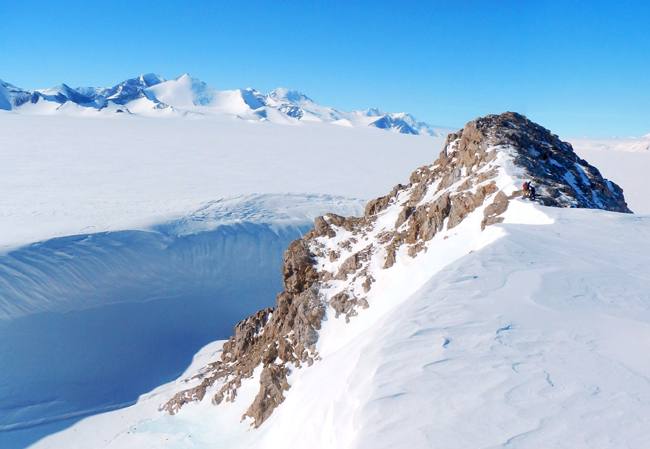A UT research associate published a recent study claiming the 2010 Chilean earthquake caused micro-earthquakes in Antarctica.
Jake Walter, a research associate at the University’s Institute for Geophysics in the Jackson School of Geosciences, assisted in a two-year research study led by Zhigang Peng, an associate professor at Georgia Institute of Technology. The study was published in “Nature Geoscience” in August. They discovered ice deformations in Antarctica were caused by an earthquake that hit Chile in February 2010. Some scientists refer to ice deformations as “icequakes.”
“Science is a very painstaking process,” Walter said in an email. “Once you think you have made a discovery, it can become months or years before you let the world know about [it].”
According to Peng, he and Walter did not intend to examine the icequakes in Antarctica. However, Peng noticed the ice deformations on several seismic stations, which adjusted the research. Walter and Peng began working with other researchers who were able to provide additional information and broadband seismometers in Antarctica.
The researchers studied frequency signals on 42 seismic stations six hours before and after the earthquake struck Chile at 3:34 a.m. They identified high-frequency seismic signals in 12 of the 42 stations in Antarctica. Their evidence indicated Antarctica is affected by seismic waves from distant earthquakes, such as the 2010
Chilean Earthquake.
“This work in fact is not yet complete, as we only show this behavior for a single earthquake, when there are many other ones to analyze and better understand,” Walter said.
Peng said Walter contributed immensely to the experiment and mentioned their ongoing collaboration.
“Overall, I am very well-pleased with his performance here [at Georgia Tech], and we are working on several projects together, including one in Costa Rica,” Peng said.
Walter is currently working on projects related to tectonics, earthquake source processes and understanding how and why glaciers move quickly.
Walter said he encourages students to find a topic they’re interested in researching and begin by asking professors who specialize in that field about the subject.
“Oftentimes we are too busy to actively seek out undergraduate researchers,” Walter said. “The ones who show initiative tend to be the type of eager, budding scientists that we would want to employ.”




















